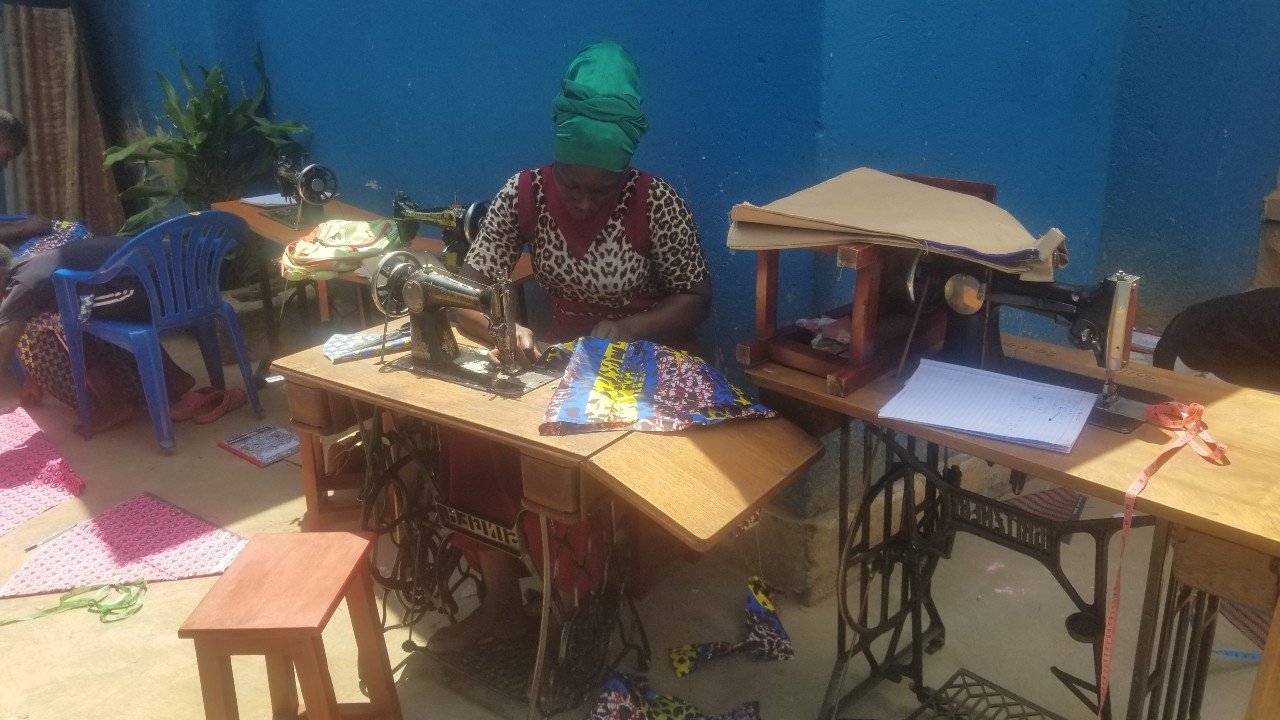In September, Youth and Women Initiative for Sustainable Development (YWISD) based in the Wakiso sub-district of Uganda, completed its first round of their project, Kisoboka (you can make it), where they educated 50 women and girls in tailoring skills. YWISD was founded in 2016 by 5 young, unemployed women graduates, who grew up witnessing their mothers being exploited by men in the agricultural industry. They saw women in their community doing the majority of the work tending the crops, and then allowing men to sell the products, and take most of the profits. YWISD was created to take a stand against gender and economic inequalities and to increase women’s participation in securing their livelihoods.
Kisoboka was created for indigeneous women and girls with disabilities to engage in viable employment opportunities to support themselves and their families and increase their overall quality of life. Beginning in March 2022, 50 women were selected to participate in a six month training program in tailoring. The goal of the training was to provide a practical, profitable skill to women who are unemployed and unable to find traditional work. YWISD identified tailoring and baking as skills with high demand in their community, and following this first round of training, they are beginning a second cohort to teach women baking skills.
YWISD has shared some participant stories with us to demonstrate just how impactful this project has been in the lives of women with few opportunities to support themselves.
Nakimuli Angelinah, a seventeen year old who left school in senior one said, “I stay with both of my parents. My mother is a house wife and my father is the one financially taking care of us. Due to COVID-19, my father lost his job, making it difficult for him to sustain the family. Therefore, being a girl child, I was forced to drop out of school for my boy siblings to study. My father has an old belief that educating a girl child is a waste of money. ‘After all, I am going to get married and leave home.’ He was planning to marry me off as he could see me as a source of dowry. When I heard about Kisoboka I hurried to join the training because I always wanted to learn tailoring even though the funds weren’t available and I hadn't yet got any opportunity. It is really a once in a lifetime opportunity for me and I am really so grateful. Thank you very much Angella [YWISD founder], may God really bless you for me because I have nothing to give back to you.”
Mary Kabonesa, a participant and advocate for the creation of Kisoboka told us, “When I was in senior five, my father married a new wife and ended up separating from my mother. He was previously the one taking care of us, and he had stopped my mother from working. After marrying his new wife, my father refused to pay me and my siblings’ school fees, claiming that we would be able to survive without studying because he also didn’t study but was surviving. I was forced to get married when I was 17 years old and I have 4 children and without any income. I want to be in a position to provide basic needs to my children as well and to avoid what happened to us. I have always wanted to learn tailoring skills and I was among those who suggested that YWISD could help extend to us these services. I am so grateful for the skills I have learnt for free of charge, they will help me earn a living.”
Another participant, Nabirye Mariam explained, “I lost my mother when I was in primary six. My mother was the one taking care of me and also paying my school fees because my father had neglected his responsibilities and no relative was willing to take me in. I had to drop out of school. This forced me to go to the city to look for a job and I got a job as a maid. However, without guidance from any parent or relative I found very many challenges and I was forced into marriage when I was fifteen years old. I currently have three children. I am the breadwinner for them, but I don’t have any skill other than digging people’s gardens to earn a living. I am grateful for this opportunity as now I will be able to earn a decent income and provide basic needs for my children.”
The participants in the first cohort of Kisoboka are looking forward to starting their own businesses and are optimistic about the future and their ability to support their families and keep their children in school. This month, YWISD will begin its second cohort, training 50 women in baking. When the second training is complete, they will hold a graduation ceremony for both groups.
Currently, YWISD is overwhelmed with interest in the program, as many women and girls were forced to leave school during the COVID-19 pandemic and are looking to earn an income. The organization has plans to construct an outdoor awning, allowing them to expand their capacity and train women outside even during the rainy season. They have 25 women registered for the next tailoring training and are working to raise the funds to implement the program. Kisoboka, which translates to “we can make it,” is living up to its name as it continues to provide opportunities for economic empowerment of women on the margins.




